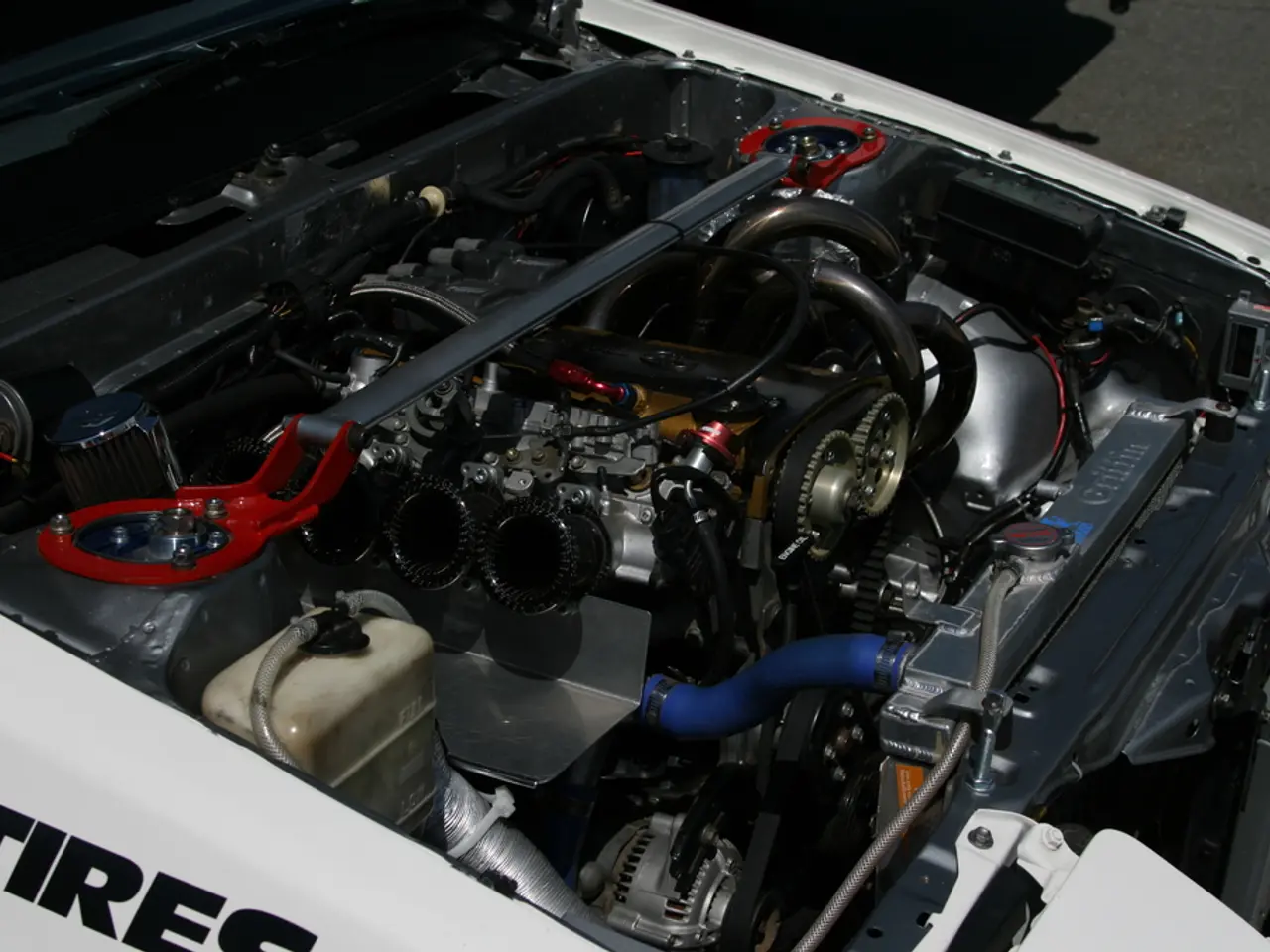Nio's Detailed Strategy Unveiled for the Year 2024 and Beyond Regarding Batteries
Chinese electric vehicle (EV) manufacturer Nio has seen a significant boost in sales, with Q2 2025 deliveries surging 71.2% to 72,056 units. This growth is attributed to Nio's strategic focus on more affordable EVs and continued investment in battery swapping technology.
In the first ten months of 2023, Nio sold 126,067 cars in China, placing it ninth in the Chinese EV and plug-in hybrid market. The company's sales rebounded in Q3 2023, with 55,432 units sold, following a dip in Q2 to 23,520 units.
Nio's success in China is underpinned by its battery swapping (BaaS) infrastructure, which aims to reduce charging wait times and enhance user convenience. The company has been installing battery swap stations across Europe, reaching 30 as of December 2023. Nio's battery-swapping technology, called Nio Power Swap, replaces a battery pack in three minutes and is based on 1,600 patents.
Nio's strategy also includes partnerships with Geely and Changan Auto, allowing models from these brands to use Nio's charging network. The company has a battery team of over 400 engineers, aiming to produce low-cost lithium manganese iron phosphate (LMFP) and high-performance 4680 battery cells.
While Nio is not yet a leader in fully solid-state batteries, it has taken early steps towards next-generation technology through its collaboration with China’s WeLion semi-solid batteries. WeLion supplies Nio with batteries that offer an energy density around 360 Wh/kg, as seen in Nio's flagship sedan.
Industry competitors like BYD and GAC are planning industrial-scale solid-state battery production around 2025-2030. Nio's own broad solid-state battery rollout is expected to follow this industry trend in the late 2020s at the earliest.
Nio's success in Europe and globally hinges on balancing affordability and profitability, scaling swap networks abroad, and eventually integrating advanced solid-state batteries when commercially viable. The company aims to reach 2,300 power swap stations globally by the end of 2023.
Nio has also introduced an ultra-fast charger, Power Charger 3.0, and a 150 kWh battery pack with an energy density of 261 Wh/kg, 44.44% higher than the lithium-ion pack, offering a range of 930 km.
Despite the strong growth, Nio reported a loss of $835 million between April and June 2023, with a loss of approximately $35,000 for each car it sold. In response to the Chinese Commerce Ministry's green car campaign, Nio announced price cuts on all models by $4,200. In November 2023, the company announced a workforce reduction of 10% to reduce costs and compete better.
In summary, Nio currently leads in battery swapping infrastructure and affordability, which boosts sales and customer loyalty domestically and supports expansion overseas. Their solid-state battery deployment remains in early stages via semi-solid tech, with broader adoption expected industry-wide in the late 2020s. This dual approach positions Nio well against competition but requires careful capital management and ongoing technological advancement to maintain and grow market share in Europe and globally amidst intensifying competition and rapid battery innovation.
References: [1] CNBC [2] Reuters [3] Bloomberg [4] Electrive [5] Green Car Reports
- In the landscape of automotive business, Nio's successful implementation of battery swapping technology in Europe could challenge the dominant finance models of established transportation companies, potentially reshaping the industry.
- As the race toward next-generation battery technology unfolds, Nio's strategic partnership with WeLion seeks to advance technology in the field of semi-solid batteries, putting the company in a competitive position within the technology sector.
- With a focus on affordability, Nio's partnerships with Geely and Changan Auto in the finance sector allow for greater access to charging networks, further expanding their business empire in the transportation industry.




